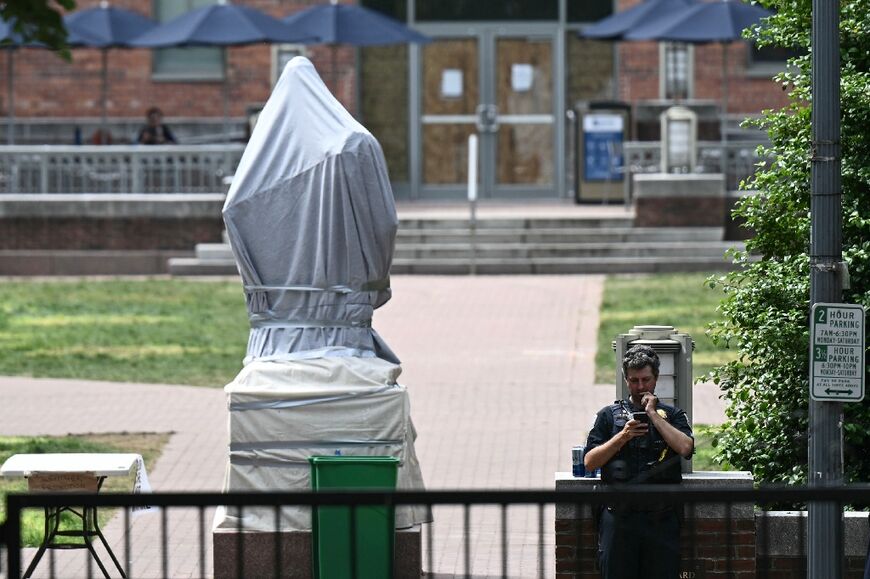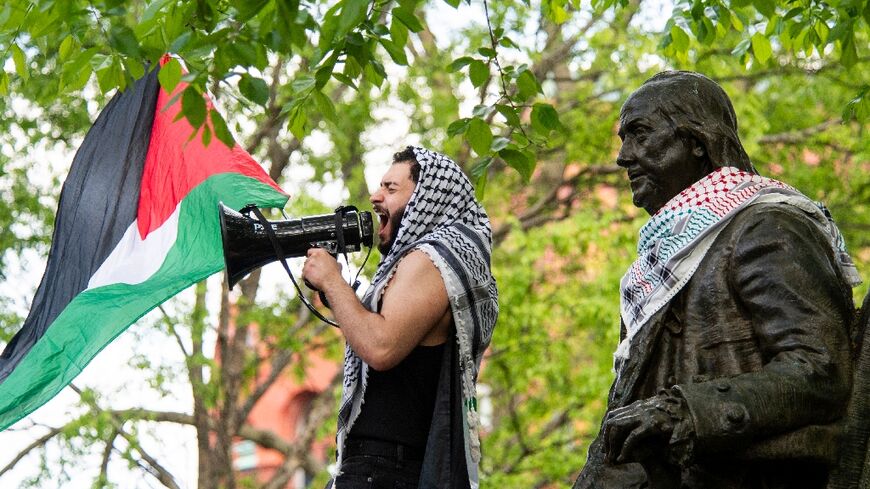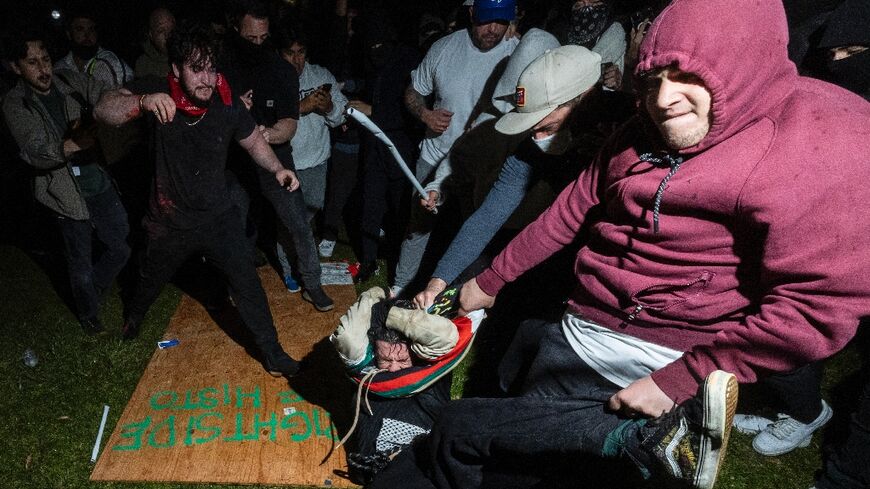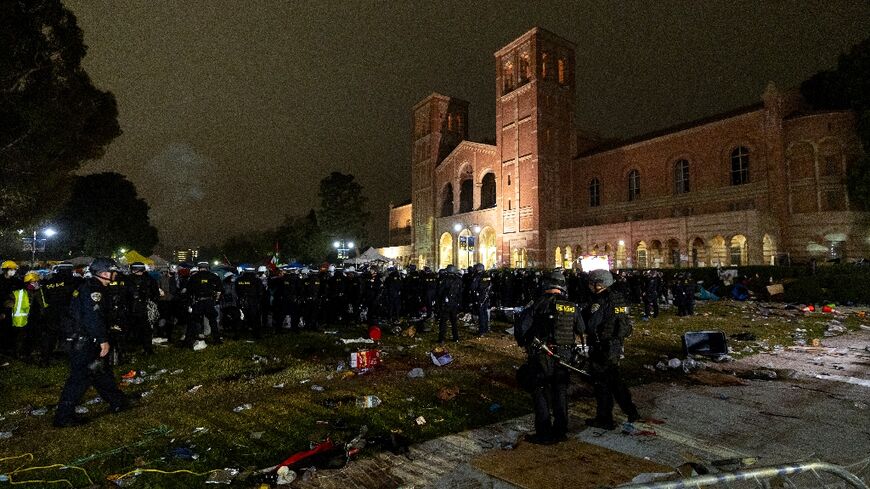Washington police clear pro-Palestinian university encampment
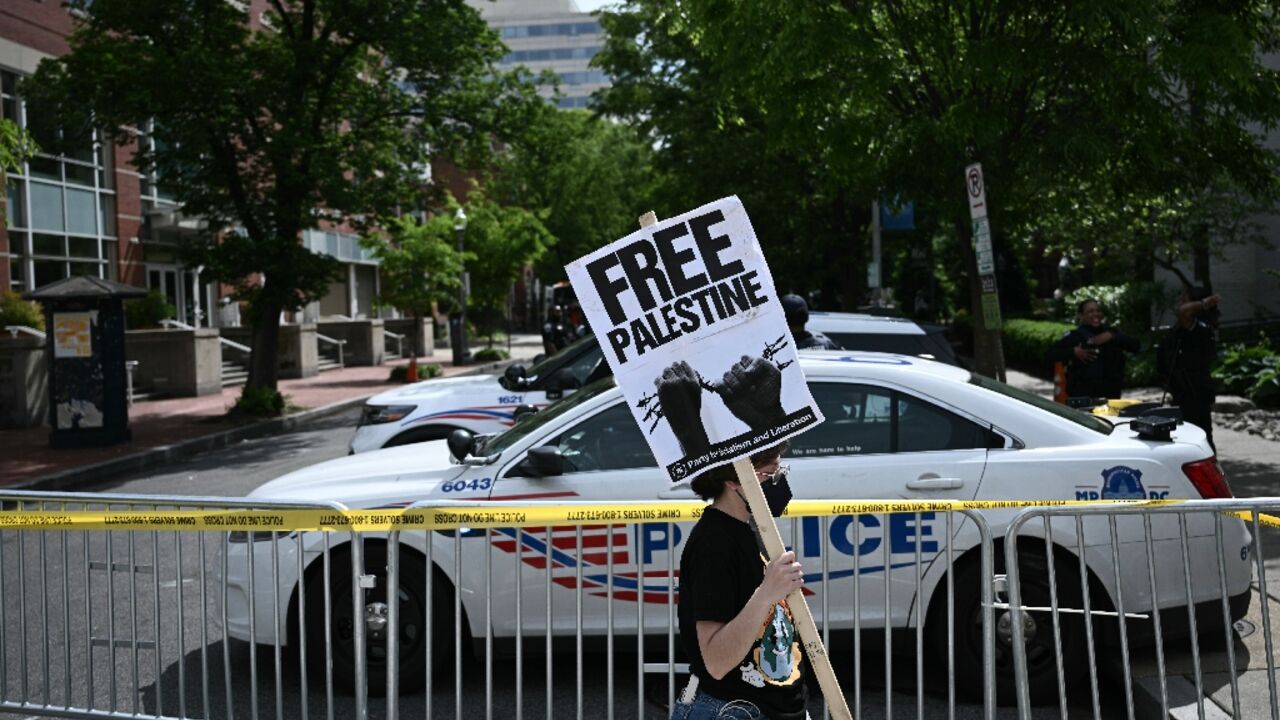
Police forcibly cleared an encampment of pro-Palestinian protesters at George Washington University in the US capital on Wednesday, arresting dozens in the latest clash with students demonstrating over the Israeli offensive in Gaza.
Republicans in Congress had pressured local authorities to act on the encampment, summoning Washington's mayor and police chief to testify in the House of Representatives later Wednesday.
But just after 4:00 am (0800 GMT), hundreds of officers moved in on a university quad, making arrests and using pepper spray.
Police said 33 people were arrested for "unlawful entry" and "assault on a police officer."
Officers remained on the scene around 10:00 am, an AFP reporter saw, as tents were being dragged toward a garbage truck and a student held a poster reading "Free Palestine."
Congressional Republicans had questioned why it had taken so long for the encampment, which had entered its second week, to be cleared.
But the top Republican on the House Oversight Committee said Wednesday's hearing was canceled now that the encampment had been cleared.
"I am pleased that the potential Oversight hearing led to swift action" by Mayor Muriel Bowser and police chief Pamela Smith, committee chairman James Comer said in a statement.
Democrat Rashida Tlaib criticized the move, however, warning at a press conference that lawmakers "cannot arrest their way out of this growing dissent."
A student speaking at Tlaib's event accused police of sending "multiple" protesters to the hospital.
Late last month, police had declined a request from the university to disband the encampment, the Washington Post reported, citing worries about moving in against peaceful protesters.
The police department said it had tried to "deescalate tensions" without arrests, but that based on "incidents and information, there has been a gradual escalation in the volatility of the protest."
Campus protests have sprung up across the country in recent weeks, with students calling on universities to cut direct or indirect financial ties with US weapons manufacturers and Israeli institutions.
The at-times raucous rallies have rocked colleges. Some Jewish students have reported threats and anti-Semitism, while pro-Israel counter-protesters at the University of California, Los Angeles physically attacked demonstrators at an encampment.
- Free speech versus intimidation -
Both President Joe Biden and universities have tried to walk a fine line between free speech rights and concerns about intimidation.
On Tuesday, Biden condemned a "ferocious surge" in anti-Semitism in a speech at the US Capitol, saying "there's no place on any campus in America -- any place in America -- for anti-Semitism or hate speech or threats of violence of any kind."
Demonstrators, including some Jewish student organizers, have said they denounced acts of anti-Semitism, and accuse their detractors of conflating criticism of Israel with prejudice against Jews.
They've also criticized what they say is a heavy-handed police response, with more than 2,000 students arrested nationwide -- and say harassment of Muslims, Palestinians and Jewish students opposed to the war are being ignored.
"Calling in the police in riot gear immediately, that is what's new this time," American Association of University Professors president Irene Mulvey told AFP of campus responses across the country.
Some universities, she noted, have engaged with protesters and reached some agreements on university investments.
Police have warned that law enforcement will not allow a new encampment to be set up at George Washington University.
A 21-year-old GW student named Hanaan shrugged the warning off.
"They're gonna take down the barricades," she told AFP, declining to give a last name. But "people are gonna come right back."


